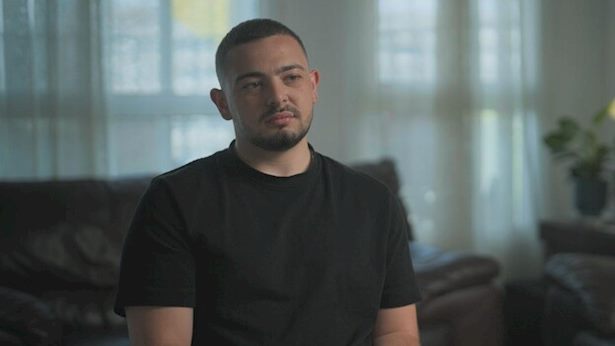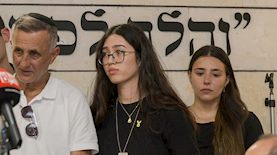
We live in a crazy reality that even an episode of Black Mirror sometimes seems realistic compared to it. Since the return of some of the abductees – some in the deal and some in the rescue – a rather passive television genre has begun in which some of the abductees sit down in front of the camera and tell their story. This is a document of special value both in the explanatory and national aspect that is important to resonate throughout the world. Today, after we were exposed to quite a few such interviews in the various media, yesterday it was the turn of Almog Meir Jan, who was rescued about two and a half months ago along with four other abductees in Operation Arnon: Shlomi Ziv, Andrey Kozlev and Noa Argamani who did not stay with the three, but was nearby to them part of the time.
Almog, who was interviewed for the “Ovda” program that is broadcast on Bequest 12, revealed to Ilana Dayan all the hardships he went through until the moment of the rescue. It was a shocking, complex, forced but also optimistic record. It was an effective and moving interview not only because Almog, only 21 years old, turned out to be an excellent storyteller, but thanks to the fact that he was able to verbally and eloquently express all the complexity of the experience he went through and above all to express in it all the psychological and survival elements during the entire period. Those elements In the end, Ilana Dayan, perhaps the best interviewer on television, knew how to ask the right questions with the necessary sensitivity and in the end she managed to draw the lines from one point to the next When it is accepted, one can begin to understand the monstrous and unimaginable experience that Almog and his friends went through, who just went to a party and found themselves a few hours later on the outskirts of the fierce hell.
Something in Almog’s relaxed speech during the interview can be deceiving. He speaks with a calmness and calmness that matched her with the experience he went through too much. The shocking moments come precisely when you are not ready, as for example, the story about the psychopathic prisoner who guarded them – Abdullah Al Jamal, an Al Jazeera man – who turned out to be a cruel and unexpected sadist and would punish them to his heart’s content. Another critical moment was when, following Almog’s “insolence” to one of the captives, he was told that the punishment would be to go to the tunnel. Fortunately for him, the same moment was eventually avoided thanks to the intervention of one of the guards. Almog’s story was also unique due to the fact that he was able to focus specifically on the “surroundings” if that is the dynamic he had with the three, that on the one hand, he says and laughs, there were moments he could not see them anymore and on the other hand these are the people whose lives depended on each other.
He told there about activities that helped him distract himself and keep his sanity, like every day being grateful for ten things he has in life, counting he did on cardboard during the days of Ramadan, drawings he drew for many days, and all kinds of other little things that helped him keep his sanity and in the end Survive this hell. Towards the end of the interview came one of his most moving moments. It happened when he told Ilana Dayan about the fear of the possibility that he would wake up during the night and discover signs of post-traumatic stress disorder. This moment was decisive because Almog is not only well aware of the new reality in his life, but because it is important to mention what should be self-evident, the recovery process expected for the abductees is long and Sisyphean, and the fact that there are still about 120 abductees in Gaza is a certificate of poverty for the government and anyone who delays the deal and the possibility to return them.
More in-
In the last part of the interview, Dayan managed to get the message across and asked Almog semi-political questions but of great importance, this is because the interview, as a document, is very important, but its effect and message, according to which there are still abductees in Gaza and there are those who are trying from within the government to delay the execution of the deal, is the The most important and important message of this broadcast.
Comments to the article(0):
Your response has been received and will be published subject to the system policy.
Thanks.
for a new comment
Your response was not sent due to a communication problem, please try again.
Return to comment
ظهرت في الأصل على www.ice.co.il


